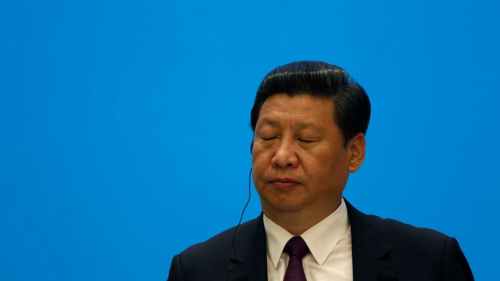Since the advent of reform and opening up, Chinese society has presented a picture of prosperity, with sustained economic growth and an increasingly elevated international status, making it the world's second-largest economy. However, since Xi Jinping came to power, his self-righteousness and arrogance have led to a decline in the country's economic growth rate every year. Especially in the past two years, the national economy has deteriorated, leaving people struggling to make ends meet.
We are facing an undeniable reality—the inadequacy of the social welfare system. Under this weak system, the Chinese people have been unable to enjoy the dividends of economic development or receive adequate protection, living in a state of instability. However, at the same time, the CCP has generously aided foreign countries, rolling out the red carpet for so-called diplomatic support while neglecting the welfare of its own citizens. What logic underlies this?
I. Weaknesses in the Domestic Social Welfare System
China is the world's second-largest economy; however, its domestic social welfare system does not correspond to this status. From healthcare and education to social security, the rights and interests of the Chinese people in these areas are not adequately protected. Healthcare resources are unevenly distributed, with high-quality medical resources excessively concentrated in major cities, while vast rural areas lack adequate medical resources, leaving ordinary people feeling powerless in the face of illness. There are enormous class differences in the education system, and the distribution of educational resources among regions is extremely uneven, resulting in educational inequality. The social security system is weak, and issues regarding the welfare of vulnerable groups such as the elderly and disabled are highly controversial.
The fundamental reason for this series of problems is the insufficient investment by the CCP in social welfare. Compared to other countries of similar standing, China's social welfare system is far behind and fails to meet the people's basic welfare needs.
II. Lavish Foreign Aid
In stark contrast to the shortcomings of the domestic social welfare system, the CCP's foreign aid is lavish and generous. The CCP actively participates in international aid, providing significant funds, technology, and assistance projects to many countries, including developed ones. This ostensible "great power responsibility" has amazed the world, yet within it, we can easily discern some existing issues.
Firstly, it is questionable whether the lavishness of foreign aid truly benefits the Chinese people. Whether aid projects are fully utilized in genuinely needed areas and ensure the sustainable development of recipient countries are questions that need deep consideration. With China's own social welfare system being inadequate, should the focus not be on domestic development rather than allocating vast resources to foreign aid?
Secondly, the diplomatic considerations behind foreign aid are a cause for concern. Does the CCP view foreign aid as a means to garner international prestige and diplomatic support? In some international events, the CCP's intensity of foreign aid seems to have certain connections with international political events.
III. Trade-offs between Domestic and Foreign Policies
The CCP's trade-offs between domestic and foreign policies have raised doubts about its true motives. In some significant international events, the CCP appears to prioritize maintaining its international image over the domestic social welfare system, placing it in a secondary position. Is this trade-off based on the interests of all citizens, or is it solely for personal gain?
In handling domestic and foreign policies, the government's decisions should prioritize the well-being of the people. If social welfare is inadequate, should the CCP not prioritize addressing domestic issues rather than allocating vast resources to foreign aid? Is this trade-off in line with the expectations and needs of the people, or is it a wise decision?





